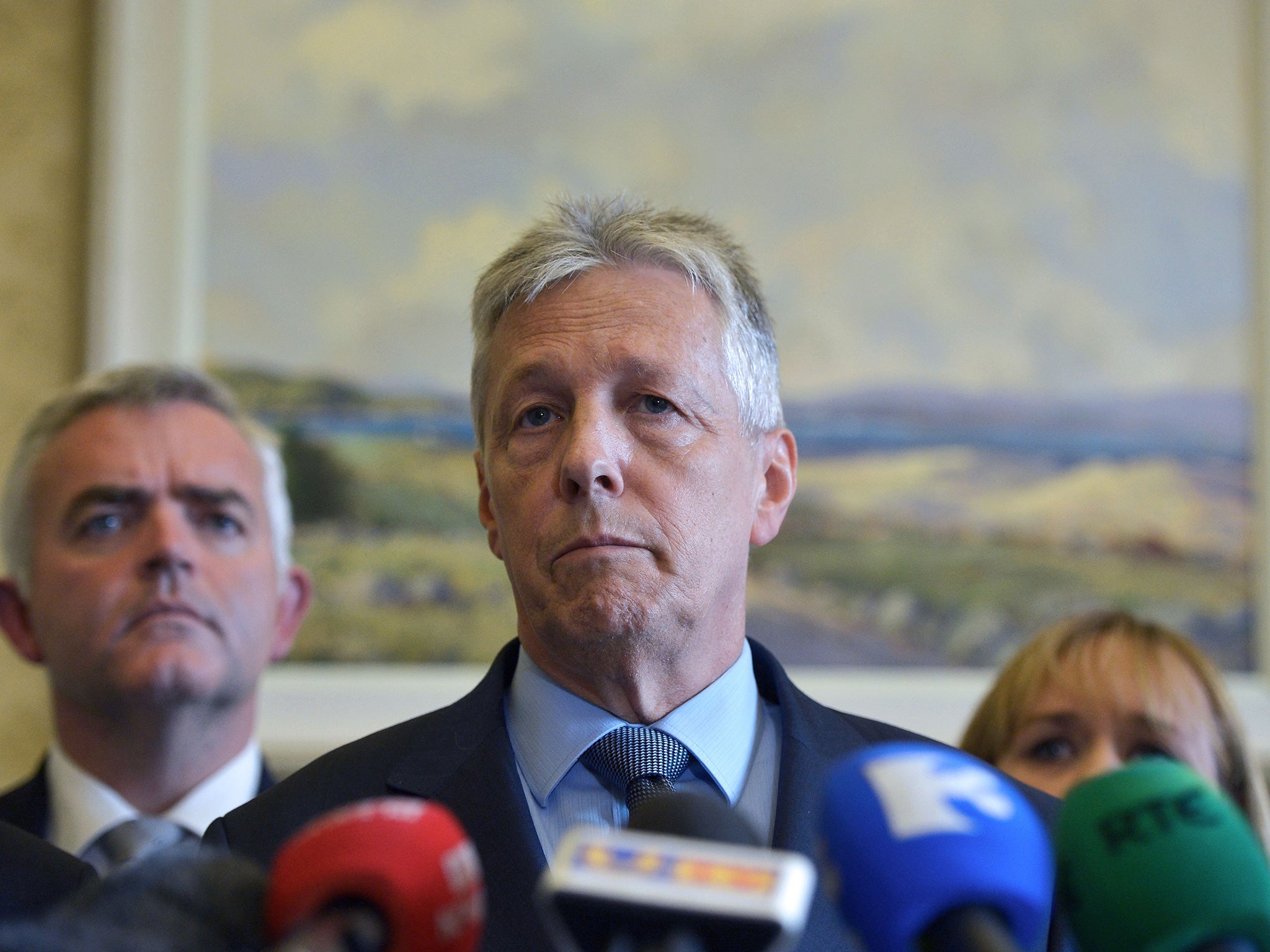Northern Ireland's political crisis: The Assembly has delivered little so far, but most unionists and republicans want it to survive
The DUP and Sinn Fein dominate the Assembly but, for well over a year, have found it impossible to cooperate in anything approaching harmony

Your support helps us to tell the story
From reproductive rights to climate change to Big Tech, The Independent is on the ground when the story is developing. Whether it's investigating the financials of Elon Musk's pro-Trump PAC or producing our latest documentary, 'The A Word', which shines a light on the American women fighting for reproductive rights, we know how important it is to parse out the facts from the messaging.
At such a critical moment in US history, we need reporters on the ground. Your donation allows us to keep sending journalists to speak to both sides of the story.
The Independent is trusted by Americans across the entire political spectrum. And unlike many other quality news outlets, we choose not to lock Americans out of our reporting and analysis with paywalls. We believe quality journalism should be available to everyone, paid for by those who can afford it.
Your support makes all the difference.Northern Ireland’s political parties are to gather in Belfast on 14 September – in a markedly pessimistic atmosphere – as the British and Irish governments mount a rescue operation aimed at saving the power-sharing administration from collapse in the wake of the ongoing IRA controversy.
David Cameron described the crisis, which centres on differences between the Democratic Unionists (DUP) and Sinn Fein, as “extremely urgent and difficult” but both he and the Irish Prime Minister Enda Kenny have made it clear they will make strenuous efforts to avert the downfall of the Assembly.
The DUP and Sinn Fein, as the principal unionist and republican parties, dominate the Assembly but, for well over a year, have found it impossible to cooperate in anything approaching harmony. There have been many months of deadlock over budgets and welfare reform.
One glimmer of hope, however, is that neither party wants to see the demise of the Assembly which came into being after decades of effort and which gives both a significant political platform.
Many forecast that it could take up to a year to replace it with a new institution, forcing London to reintroduce direct rule.
At the same time, there is little sign that the fall of the Assembly would provoke much public dismay – years of stalemate have given it a reputation as a costly institution which has delivered little.
Already widely described as dysfunctional, many of its operations were frozen this week when the DUP leader Peter Robinson stepped aside as First Minister and pulled three of his four ministers out of the ruling Executive.
This followed the arrest of three leading republicans including Bobby Storey, Sinn Fein’s chairman in Northern Ireland, for questioning about a murder apparently caused by a long-standing personal feud.
The three were unconditionally released after just over a day in custody, but the episode brought a statement from Chief Constable George Hamilton claiming that “an IRA” remained in existence and that the killing had been carried out by IRA members.
He went on to say the killing had not been officially sanctioned by the organisation and, unusually, declared he was satisfied that both the IRA and Sinn Fein were committed to the peace process.
It has since become obvious that the authorities have long been aware of the IRA’s continued existence, but were satisfied that it posed no security threat. According to the Northern Ireland Secretary Theresa Villiers: “The IRA is not involved in terrorism. There are some organisational structures, but they are for a radically different purpose than in the past.”
This relatively relaxed attitude has not been shared by unionist parties, however, who have now declared that the Assembly could not continue with business as usual while paramilitarism persisted. The British government has since toughened its attitude, declaring that all vestiges of paramilitarism must go, and all such groups must be “disbanded on all sides.”
There remains a gulf between Sinn Fein and unionists which will be difficult to bridge in the talks, however, particularly because Sinn Fein adamantly maintains that no IRA remains. This is a position which puts it completely at odds with London, Dublin, unionism in general and almost all observers and commentators. Mr Kenny, for example, has said Sinn Fein’s assertions are “simply not credible.”
One idea under consideration is the establishment of a new independent authority which would report on whether groups such as the IRA had completely disbanded.
David Cameron said: “I would appeal to the politicians to go the extra mile, the extra 10 miles if they have to, to make these institutions work for people in Northern Ireland.”
Join our commenting forum
Join thought-provoking conversations, follow other Independent readers and see their replies
Comments